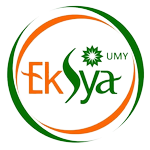Additional Menu
Scopus Citation Analysis
Journal of Islamic Economic and Business Research has been cited at least 19 times from 10 articles.
Scopus Citedness: update 02/04/2024
1. Nurani, L. ., & Adinugraha, H. H. (2022). Consumer Preferences in the Selection of Muslim Fashion Products in Indonesia. Journal of Islamic Economic and Business Research, 2(2), 104-113. https://doi.org/10.18196/jiebr.v2i2.26
Cited by:
- Mustofa, I., Juliansyahzen, M. I., & Hefni, W. (2023). Hijrah and changing religious preferences in contemporary Islamic legal practice. Ijtihad: Jurnal Wacana Hukum Islam Dan Kemanusiaan, 23(1), 115-138. https://doi.org/10.18326/IJTIHAD.V23I1.115-138
2. Candra, W. ., Tubastuvi, N., Santoso, S. B. ., & Haryanto, E. . (2022). Analysis of The Islamic Leadership, Islamic Work Ethics and Intellectual Intelligence on Employee Performance with Islamic Organization Culture as Moderated Variables. Journal of Islamic Economic and Business Research, 2(1), 1-14. https://doi.org/10.18196/jiebr.v2i1.21
Cited by:
- Zulkifli, Z., Purwati, A. A., Renaldo, N., Hamzah, Z., & Hamzah, M. L. (2023). Employee performance of Sharia Bank in Indonesia: The mediation of organizational innovation and knowledge sharing. Cogent Business and Management, 10(3). https://doi.org/10.1080/23311975.2023.2273609
- Abbas J. Ali, Lamya Al-Aali & Krish S. Krishnan (2023) Work Ethics in Saudi Arabia: The Critical Role of Women and Expatriates, Journal of Promotion Management, DOI: https://doi.org/10.1080/10496491.2023.2251460
3. Salman, K. R. (2022). Exploring the History of Islamic Accounting and the Concept of Accountability in an Islamic Perspective. Journal of Islamic Economic and Business Research, 2(2), 114-130. https://doi.org/10.18196/jiebr.v2i2.34
Cited by:
- Moosa, R. (2023). An Overview of Islamic Accounting: The Murabaha Contract. Journal of Risk and Financial Management, 16(7), 335. MDPI AG. Retrieved from http://dx.doi.org/10.3390/jrfm16070335
-
Ghanim Alzubaidi, H., Alekseeva, I. V., Bogataya, I., Evstafieva, E. M., & Prodanova, N. A. (2023). Islamic model of accounting: Formation and development prospects. E3S Web of Conferences, 449. https://doi.org/10.1051/e3sconf/202344909004
4. Muhammad, T., & Haruna, H. T. . (2022). The Potential of Sukuk for Financing Oil and Gas Sector in Nigeria. Journal of Islamic Economic and Business Research, 2(2), 131-155. https://doi.org/10.18196/jiebr.v2i2.66
Cited by:
- Mohd Roslen, S. N., Chua, M.-S., & Hj Mohd Ruslan, R. A. (2024). Long-run asymmetric effects of financial risks on Sukuk market development: empirical evidence from Malaysia. Journal of Islamic Accounting and Business Research. https://doi.org/10.1108/JIABR-08-2022-0200
5. Wulandari, W. D. . (2021). Linking Person Job Fit, Person Organization Fit and Organizational Culture to Employee Performance in Islamic Banks: the Mediating Role of Job Motivation. Journal of Islamic Economic and Business Research, 1(2), 125-139. https://doi.org/10.18196/jiebr.v1i2.17
Cited by:
- Zulkifli, Z., Purwati, A. A., Renaldo, N., Hamzah, Z., & Hamzah, M. L. (2023). Employee performance of Sharia Bank in Indonesia: The mediation of organizational innovation and knowledge sharing. Cogent Business and Management, 10(3). https://doi.org/10.1080/23311975.2023.2273609
6. Sheikh, I. A. (2021). Prospects for Interest-Free Micro Finance in India: An Empirical Study. Journal of Islamic Economic and Business Research, 1(1), 15-39. https://doi.org/10.18196/jiebr.v1i1.115
Cited by:
- Morse, S. (2024). Giving and Receiving: Faith and the Sustainability of Institutions Providing Microfinance Services for Development. Sustainability (Switzerland), 16(5). https://doi.org/10.3390/su16051923
- Rani, V. S., & Sundaram, N. (2023). Impact of Financial Inclusion on Women Entrepreneurs in India: An Empirical Study. Journal of Law and Sustainable Development, 11(7), e1308. https://doi.org/10.55908/sdgs.v11i7.1308
7. Jadmiko, P. (2021). Perceived Social Support as Moderator Variable Between the Attitude of Becoming A Social Entrepreneur (ATB) On Social Entrepreneurial Intention. Journal of Islamic Economic and Business Research, 1(1), 86-99. https://doi.org/10.18196/jiebr.v1i1.11703
Cited by:
- Jeonghwan Choi, Valerie Vaccaro, Sookyoung Lee, Rob Marjerison, Kihwan Kim & Bok Gyo Jeong (2023) Social Entrepreneurial Intention Change by Gender during the COVID-19 Pandemic, Journal of Social Entrepreneurship, DOI: https://doi.org/10.1080/19420676.2023.2251986
8. AbdulKareem, I. A., Olaide, K. M. ., & Isiaka, O. S. . (2021). Curbing Unemployment and Brain Drain Among Nigerian Youths Through Islamic Financing Instruments. Journal of Islamic Economic and Business Research, 1(1), 59-71. https://doi.org/10.18196/jiebr.v1i1.11654
Cited by:
- Amuda, Y. J., & Hassan, S. (2024). Qualitative perspectives of middle and high skilled workers on humanitarian crowdfunding for poverty reduction in selected organization of Islamic cooperation. Journal of Infrastructure, Policy and Development, 8(1). https://doi.org/10.24294/jipd.v8i1.2912
- Amuda, Y. J. (2023). Islamic Financial Surplus for Energy and Gas Investment: Towards Financial Inclusion for Improving Living Condition of Needy and Poor in Nigeria. International Journal of Energy Economics and Policy, 13(5), 394-406. https://doi.org/10.32479/ijeep.14514
- Polyzos, E., Samitas, A. and Syriopoulos, K. (2022), "Islamic banking, efficiency and societal welfare: a machine-learning, agent-based study", International Journal of Islamic and Middle Eastern Finance and Management, Vol. ahead-of-print No. ahead-of-print. https://doi.org/10.1108/IMEFM-04-2022-0144
- Jelili Amuda, Y. and Hassan, S. (2023), "Empirical investigation of Islamic legal framework, crowd humanitarian funds and poverty reduction in selected Organization of Islamic Cooperation (OIC)", International Journal of Social Economics, Vol. ahead-of-print No. ahead-of-print. https://doi.org/10.1108/IJSE-12-2022-0773
9. Adelekan, A. S. . (2021). Islamic Financing Effects on Small Medium Enterprises Competitiveness. Journal of Islamic Economic and Business Research, 1(1), 100-113. https://doi.org/10.18196/jiebr.v1i1.11753
Cited by:
-
Alhammadi, S. (2024). Islamic finance as a driver for enhancing economic sustainability and innovation in the GCC. Journal of Science and Technology Policy Management. https://doi.org/10.1108/JSTPM-11-2023-0206
- Al Dabbas, M. M. (2023). The role of islamic finance in the development of small and medium enterprises in jordan. Journal of Logistics, Informatics and Service Science, 10(1), 20-30. doi:10.33168/LISS.2023.0102
10. Hasan, Z. (2021). Making Indonesia as Integrated Halal Zone and World Halal Sector Hub Through the Implementation of Halal Supply Chain. Journal of Islamic Economic and Business Research, 1(1), 1-14. https://doi.org/10.18196/jiebr.v1i1.11529
Cited by:
- Hidayati, J., Vamelia, R., Hammami, J., & Endri, E. (2023). Transparent distribution system design of halal beef supply chain. Uncertain Supply Chain Management, 11(1), 31-40. doi:10.5267/j.uscm.2022.12.003
- Suseno, B. D., Sutisna, S., Hidayat, S., & Basrowi, B. (2023). Halal supply chain and halal tourism industry in forming economic growth. Uncertain Supply Chain Management, 11(4), 1433-1440. https://doi.org/10.5267/j.uscm.2023.8.003
- Ameenullah Aman, Ali Hasnain, & Dr. Waqar Ahmed. (2022). THE ROLE OF TECHNOLOGICAL, ORGANIZATIONAL AND ENVIRONMENTAL FACTORS IN THE ADOPTION OF HALAL WAREHOUSING. Hamdard Islamicus, 45(4). https://doi.org/10.57144/hi.v45i4.538




